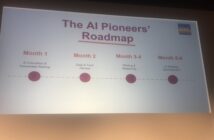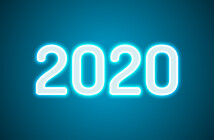These are some thoughts sparked by conversations at the L&D Connect Unconference. They are still forming but I hope they make some sense . . .
At this week’s L&D connect and conference there was a good discussion on the future role of learning and development and in particular whether the aim of learning and development is to make itself redundant – that all colleagues become so good at learning for themselves that L&D is no longer required.
The discussions picked up on performance support as being an important role of the L&D function. Performance support is quite the hot topic for learning and development. You only have to go to a conference or read any contemporary thinking to see that.
But is performance support a zero sum game for learning and development? By this I mean, are the gains made in providing performance support cancelled out by the fact L&D loses out on doing far more significant things for the organisation?
Performance support is an important part of what L&D does But there are limits to what it can achieve for the function. Technology is transforming the way business operates and this will see more admin-focused roles become automated. Technology will also improve the ability of workers to find out what they need to do their jobs and find people to help them do their jobs.
Technology will provide much of the performance support required by workers and will make many admin-focused roles redundant. Too much emphasis on performance might put whole L&D teams out of work.
It might be more useful to think of performance support as ‘job UX’ or job user experience. User experience in the digital world is all about making web sites, apps and services as easy and as intuitive as possible to use. It is about removing the friction from using a site.
Good ‘job UX’ will help workers to know where to look for information to help do their job and know who to talk to should they need help doing their job. This would be baked into roles and tasks via technology.
This is an important role for L&D but it is just one part of what L&D brings to the organisation. Think of this as the foundation, great job UX ensures people are able to get up to speed in their jobs with as little friction as possible.
With the foundations in place, L&D can focus on innovation, creativity, health, wellbeing, lifelong learning – all the elements that are fundamental to people doing great work and helping organisations do great things.
Performance support has its place – it is there to provide a good ‘job UX’ – it is the foundation. And depressingly, it has taken organisations a long time to wake up to this fact.
However, in itself it is not the future for L&D and should not be seem as such. The real prize is to focus on the growth of people, their aspirations and the aspirations of those who employ them.





6 Comments
I would argue that this depends on what sort of scope you place on “performance support”, and our role within it.
One of the discussions at the unconference was how we can be like the managers of a tube network, connecting up expertise, skills, knowledge and resources in the organisation. It’s not as simple a case of “build it and they will come”. It’s not as simple as “create it and it will be used”. There might even be an element of change that we (along with others) can assist in in organisations where sharing isn’t the norm.
There’s also an element of consultancy to identify where performance support is necessary, as well as providing assistance in creating job aids. Like training, the subject matter experts may not always be best placed to provide this without some help.
So it’s not the be all and end all, but I personally in my role see it as a big part of what I can help offer the company.
I agree it is not the be all and end all, Rob. I guess I have been surprised by the amount of attention performance support is grabbing right now. I agree build it doesn’t necessarily mean it will be used but I’d also suggest the tech we use in learning is far behind consumer tech where people are integrating it seamlessly into the way they live their lives. Once that starts to happen in the world of work I think the role of L&D will need to change – and beyond performance support. What am I trying to say? Attend to performance support but also stay focused on the other areas where there will continue to be a need for L&D. Thanks for commenting!
Hi Martin,
I think your metaphor of the job UX is great. One of the things that has to be done by any business in order to be successful is to make it as easy as possible for the people doing the work to get on and do it. It is about enabling people, and the most likely candidate within an organisation to take on this role is the L&D Department. If L&D does not do it, who will? If you think of it in terms of enabling capability, performance support is only a portion of what needs to be supplied to the people either before or at the point of work.
Cheers, Paul
Thanks for stopping by, Paul! Totally agree – this is about making it as easy and intuitive as possible to perform tasks and do a job. That seems to be about enabling someone to do a job. This is an area of expertise in itself, much like UX. But what about all the other areas of learning, aspiration, personal development. I don’t hear so much of that narrative right now which seems odd when organisations want to see more innovation and creativity.
Perhaps within L&D we can do both but it doesn’t have to be the same person. I think your ‘job UX’ analogy is helpful here. You say ‘This [job ux] is an important role for L&D but it is just one part of what L&D brings to the organisation.’ And I agree. What I’m trying to say is that there can be an L&D element in operations doing the job ux piece specific to that area of business (I’m thinking this describes what I do) and an L&D element looking at some of the wider areas. Now if we need to give out names I think the HR L&D element can do the more ‘holistic elements’ you describe. Of course the more holistic areas also need elements of Job UX – people still need to know who to talk to etc… So may be more roles on the ‘shop floor’ for the specific job ux. So, a diversification perhaps with two sets of L&D collaborating to make a whole. (Just jotted some quick thoughts here.)
Thanks for your input Julian! Yes, like your line of thinking here. I guess the UX element would go deep into roles and tasks and how people work, really getting under the skin of day to day activities, the use of technology etc. I’d see that as being the foundation to bigger conversations around innovation, creativity, learning and career development, talent management etc. Hmmm, you’ve set me off thinking again – thankyou for that!